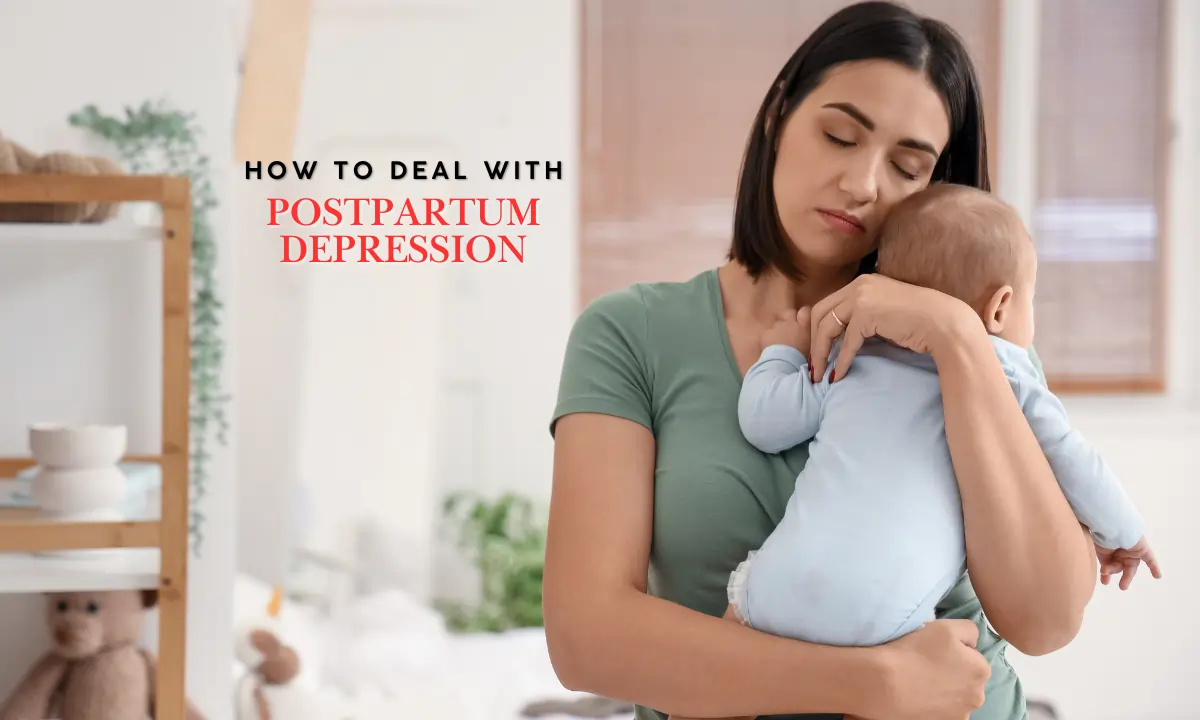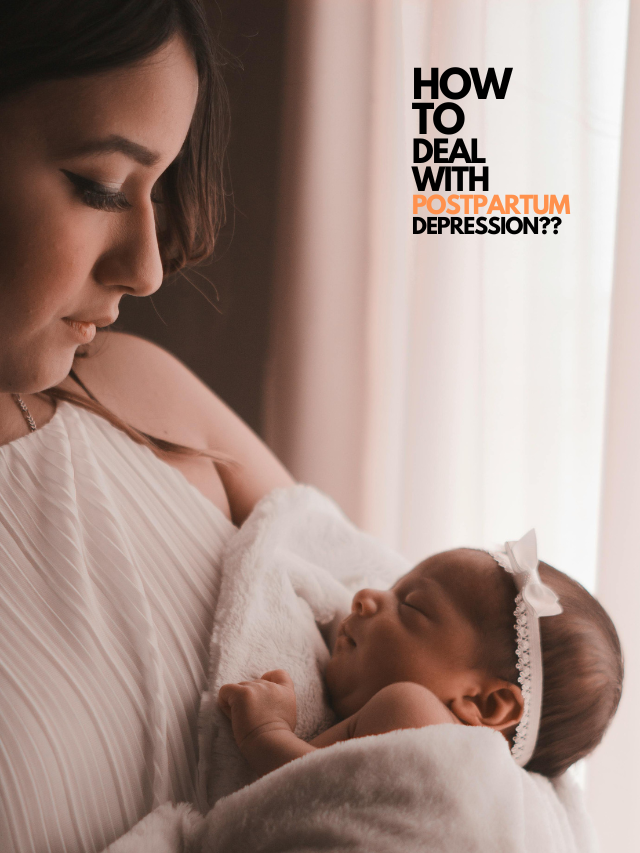What is postpartum depression?
Depression has become one of the common concerns that affects people irrespective of their age. Postpartum depression is one of the types that often occur after having a baby. For every mother, the birth of a baby may start a wide range of powerful emotions, which can be ringing from joy to anxiety. However, a large number of women witness postpartum depression, which increases the likelihood of anxiety, difficulty sleeping, and mood swings.
These symptoms are often elevated by postpartum depression that may be severe and long-lasting that is enough to affect the overall health and mental well-being of new moms. The initial signs and symptoms of this sort of depression generally start during pregnancy and continue after childbirth, but on rare occasions, extreme depression followed by mood swings happens after childbirth; that is called postpartum psychosis.
Postpartum depression has impacted its victim’s level of emotional well-being, which has been highlighted by ample symptoms with emotional ups and downs, including fatigue, frequent crying, anxiety, and guilt. When these symptoms occur in childbearing moms, it impacts their willingness to care for their baby, or they may face trouble caring for their baby. In order to effectively deal with this sort of depression, identifying its early signs and symptoms is very much key to preventing the progression of these mental health-related issues.
The ten major symptoms of this depression include: 1. Severe mood swings and feeling depressed. 2. Withdrawing from social activities 3. Difficulty bonding with your baby 4. Increase tiredness and loss of energy 5. Inability to sleep, which is known as insomnia to sleeping for long hours; 6. Intense irritability and anger, 7. Hopelessness, 8. Increase in anxiety and panic attacks, 9. Thoughts of self-harming or your baby, 10. Thoughts of suicide.
Severe mood swings and feeling depressed
The first and foremost symptoms of postpartum depression include severe mood swings and feeling depressed, and the onset of these symptoms generally develops within a few weeks after giving birth. However, frequent mood swings often happen during the first trimester, and the likelihood of depression occurs when women are in their third trimester. The symptoms of feeling depressed, followed by frequent mood swings, may last up to a year after the birth.
Withdrawing from social activities
One of the noticeable signs of this sort of depression is withdrawing from social activities. A woman, after giving birth, sometimes goes through depression, which leads them to withdraw from everyone that many include her baby friends, partner and other family members. In this sort of circumstances, the support of family members and healthcare professionals is key in reducing the symptoms of depression and anxiety.
Difficulty bonding with your baby
If treatment is not provided to childbearing mothers who are affected due to postpartum depression, this may last for months or even longer, which, depending on its severity and lack of mental care support, oftentimes becomes an ongoing depressive disorder. Therefore, on many occasions, mothers may stop breastfeeding and experience severe depression, impacting their ability to develop better bonding with their infants.
Increased tiredness and loss of energy.
The early onset of symptoms, which is propelled by this depressive condition, mostly occurs during pregnancy and in the weeks and months later after women give birth to their baby. Women and pregnant women with postpartum depression have experienced extreme sadness, fatigue and loss of energy, which cause issues among them to conduct everyday tasks, including caring for themselves or others.
Inability to sleep, which is known as insomnia to sleeping for long hours
There are various sort of symptoms of depression that specifically occur during pregnancy and after giving birth to a baby. However, sleep problems in the postpartum period have increased the possibility of developing anxiety and depression, which may upsurge the symptoms of sleeplessness or insomnia. During pregnancy, insomnia is a common occurrence and impacts the well-being of individuals after giving birth. Besides, sleeping for long hours is found to be another noticeable sign of depression among childbearing mothers.
Intense irritability and anger
It has been identified that anxiety and mood changes are very common occurrences after childbirth, which may be caused due to changes in hormones, health and daily life. This may contribute to their mood swings followed by intense anger, which have had a negative implication on the health and well-being of childbearing mothers. Some research also shows that postpartum anger and irritability can correlate with other conditions, including postpartum depression and anxiety.
Hopelessness
Postpartum depression sometimes alters the behaviour of the affected individual and may impact their motivation level, which may lead to increased feelings of hopelessness. This is very common among childbearing mothers who often decrease in interest in their baby. If this treatment occurs in the individual, early treatment and diagnosis are key to preventing the progression of depression, which is called postpartum depression.
Increase in anxiety and panic attacks
Panic attacks and anxiety disorder are identified as serious mental health conditions that may damage the health and well-being of postpartum people; in addition to depression, panic disorder and anxiety are characterized by symptoms of intense fear and anxiety that prevent the ability of an individual to perform regular activities in an effective manner. This also increases the likelihood of anxious thoughts.
Thoughts of self-harming or your baby
If the initial signs and symptoms of postpartum depression go unnoticed, consequences could be devastating since, in the advanced phase of this condition, an affected individual may have thought about harming themselves or hurting their baby. As a result, it has affected the quality of life of the individuals who are facing vulnerability due to the advanced stage of these mental health-related issues.
Thoughts of suicide
Thoughts of suicide are found to be another common symptom of this mental health issue, which requires counselling and may require psychotherapy as well.
Ways to deal with postpartum depression
There are several ways that may be beneficial for pregnant women and postpartum people to effectively deal with the adverse symptoms of these conditions, and affected individuals should overlook the stigma of mental health, which could help them deal with this sort of depression besides help them to come out of this mental health concern.
In modern times, there is a wide range of treatment options available which are effective in terms of eradicating the symptoms of postpartum depression, including antidepressant and anti-anxiety medications, psychotherapy, and support of group participation. By following the above-mentioned methods, anyone who is affected by postpartum depression may witness relief over time, which prevents the progression of this mental health concern into postpartum psychosis, which is a more adverse form of postpartum depression.
FAQ
1. What is postpartum depression?
Postpartum depression is a type of depression that occurs in women after giving birth. It’s characterized by feelings of sadness, hopelessness, and anxiety.
2. What are the common symptoms of postpartum depression?
Common symptoms include:
1. Severe mood swings
2. Withdrawing from social activities
3. Difficulty bonding with your baby
4. Increased tiredness and loss of energy
5. Sleep disturbances
6. Intense irritability and anger
7. Hopelessness
8. Increased anxiety and panic attacks
9. Thoughts of self-harm or harming your baby
10. Thoughts of suicide
3. When do the symptoms of postpartum depression usually begin?
Symptoms often begin within a few weeks after giving birth, but they can start during pregnancy or later.
4. How long do the symptoms of postpartum depression typically last?
Symptoms can last for months or even longer.
5. What can cause postpartum depression?
The exact causes are not fully understood, but hormonal changes, sleep deprivation, and stress are believed to play a role.
6. Can postpartum depression be treated?
Yes, postpartum depression is treatable. Treatment options include therapy, medication, and support groups.
7. Is it safe to breastfeed while taking medication for postpartum depression?
Many medications are considered safe for breastfeeding. It’s important to discuss this with your doctor.
8. How can I support a friend or family member with postpartum depression?
Offer emotional support, practical help, and encourage them to seek professional help.
9. Is it normal to feel overwhelmed after giving birth?
It’s common to feel overwhelmed and emotional after having a baby. However, if these feelings persist or become severe, it’s important to seek help.
10. Can men experience postpartum depression?
Yes, men can also experience postpartum depression, although it’s less common.



